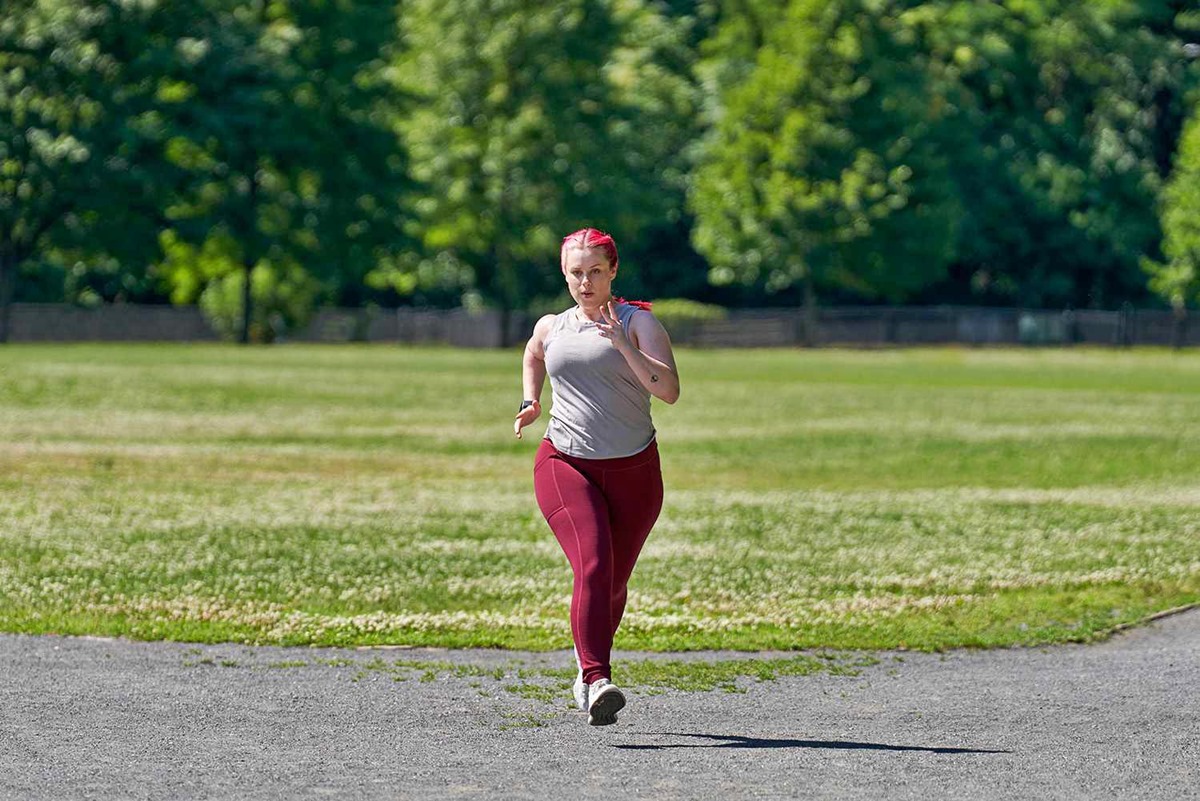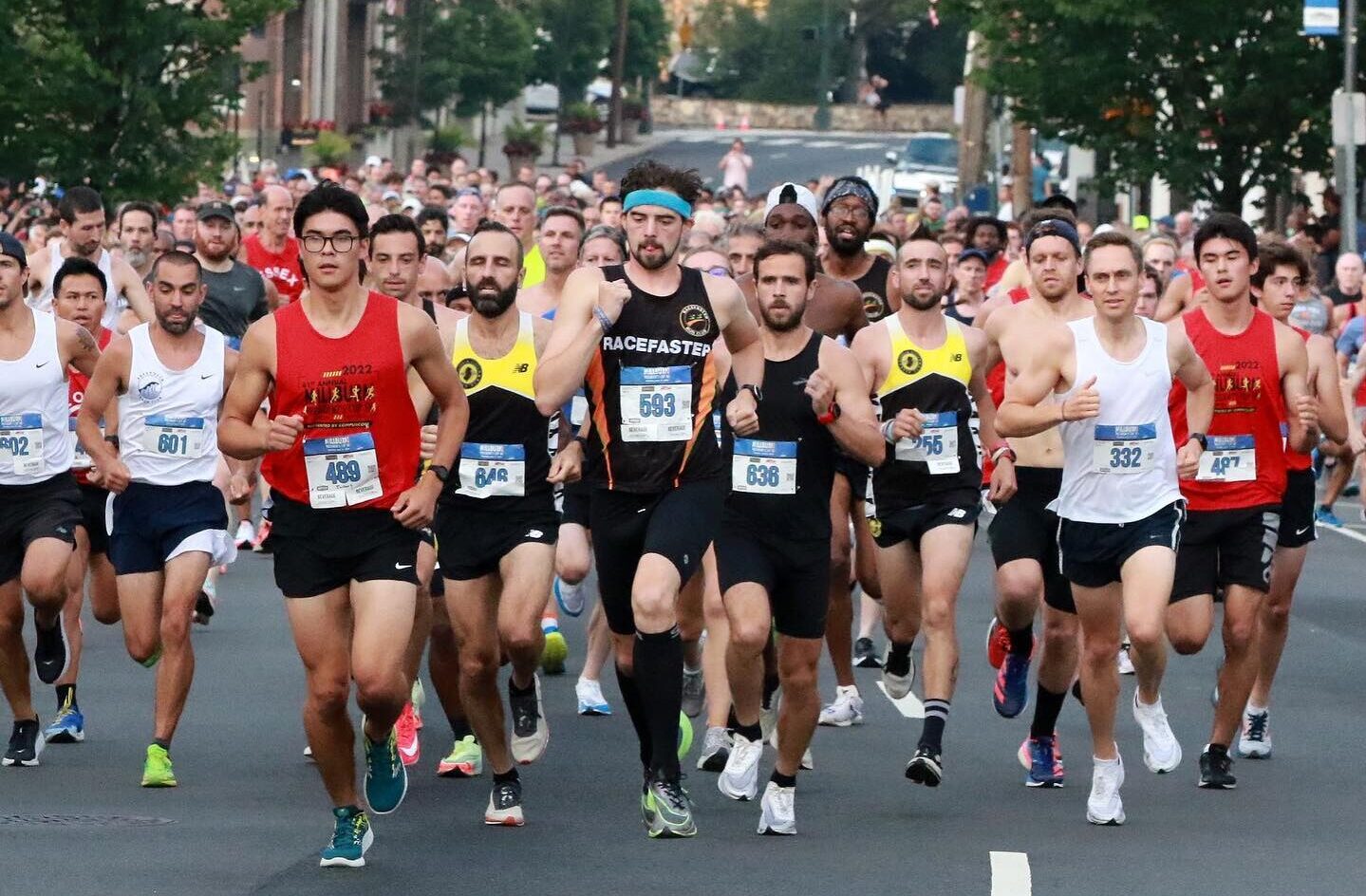Home>Misc>Featured>What Is The Formula To Figure MPH In A 5K Run


Featured
What Is The Formula To Figure MPH In A 5K Run
Modified: October 24, 2023
Learn the formula to calculate your average speed in miles per hour (mph) during a 5K run with this featured guide on MPH calculation for runners.
Introduction
Running a 5K race can be both exhilarating and challenging. Whether you’re a seasoned runner or just starting out, one question that often comes to mind is, “What is the formula to figure MPH in a 5K run?” Understanding your speed in terms of miles per hour (MPH) can provide valuable insights into your overall performance and help you set realistic goals for future races.
MPH, or miles per hour, is a measurement commonly used to quantify speed. It represents the number of miles covered in one hour. While duration and distance are typically used to gauge a runner’s performance in a 5K race, knowing your MPH adds another dimension to your understanding of your capabilities and progress.
In this article, we will delve into the fundamentals of MPH and explain the factors that can influence it in a 5K run. Furthermore, we will provide you with a step-by-step formula to calculate your MPH in a 5K race, along with a practical example to illustrate the process. Lastly, we will share some helpful tips to improve your MPH and enhance your overall 5K running performance.
Whether you’re a competitive runner aiming for a personal record or simply looking to challenge yourself and have fun, understanding your MPH in a 5K race can offer valuable insights and serve as a benchmark for your progress. So, let’s dive in and uncover the formula to figure MPH in a 5K run!
Understanding the Basics of MPH
Before we delve into calculating MPH in a 5K run, it’s important to grasp the basics of this measurement. MPH, or miles per hour, is a unit of measurement commonly used to quantify speed. It represents the number of miles covered in one hour.
In the context of a 5K run, which is equivalent to 3.1 miles, knowing your MPH can provide valuable insights into your overall performance. It allows you to gauge how fast you are running and compare your speed to benchmarks and personal goals.
When calculating MPH, it’s essential to consider the relationship between time and distance. In a 5K run, the distance is predetermined at 3.1 miles, and the time it takes you to complete the race will determine your speed in terms of MPH.
MPH is a dynamic measurement that can vary throughout the course of a 5K run. Factors such as terrain, elevation changes, weather conditions, and fitness level can all impact your speed. Understanding and accounting for these variables will allow you to make more accurate calculations for your MPH.
Remember, MPH is just one piece of the puzzle when it comes to evaluating your running performance. It’s equally important to consider other factors such as pace, heart rate, and overall endurance. These elements work together to give you a well-rounded understanding of your abilities as a runner.
Now that we have a solid grasp of the basics of MPH and its relevance to a 5K run, let’s explore the factors that can influence your MPH in more detail.
Factors Affecting MPH in a 5K Run
When it comes to calculating MPH in a 5K run, several factors can impact your speed. Understanding these variables can help you identify areas for improvement and optimize your performance. Let’s take a closer look at the key factors that can affect your MPH in a 5K run:
- Terrain: The terrain plays a significant role in determining your speed. Running on flat, even surfaces will generally allow for faster speeds compared to hilly or uneven terrain. Uphill sections can slow you down, while downhill portions may result in increased speed.
- Elevation changes: The presence of hills or changes in elevation along the race route can impact your MPH. Uphill sections require more effort and can reduce your speed, while downhill sections can lead to increased speed.
- Weather conditions: Adverse weather conditions such as high temperatures, strong winds, or rain can affect your performance. Heat and humidity can make it more challenging to maintain a fast pace, while strong winds can create resistance. It’s important to consider these factors as they can impact your overall MPH.
- Fitness level: Your fitness level plays a crucial role in determining your speed in a 5K run. Regular training, strength, and cardiovascular conditioning can enhance your endurance and speed. As your fitness level improves, your MPH is likely to increase.
- Pacing strategy: The way you pace yourself throughout the race can influence your MPH. Starting too fast or slowing down significantly during the race can negatively impact your overall speed. Finding the right pacing strategy to maintain a consistent speed throughout the 5K run is important for optimizing your MPH.
These factors work together to determine your MPH in a 5K run. It’s essential to consider them when evaluating your performance and setting goals for improvement. Now that we understand the factors that can affect MPH, we can move on to the formula used to calculate it in a 5K run.
The Formula to Calculate MPH in a 5K Run
Calculating your MPH in a 5K run involves a simple formula that relates distance and time. The formula is:
MPH = (Distance / Time) * 60
To calculate your MPH, divide the distance of the 5K run (3.1 miles) by the time it took you to complete the race. Multiply the result by 60 to convert the time from minutes to hours.
This formula allows you to determine your average speed in miles per hour. Keep in mind that it represents an average value, as your speed may vary during different parts of the race.
It’s important to note that the calculation assumes that both distance and time are measured in the same units (miles and hours) for accurate results. If the distance is given in kilometers, you will need to convert it to miles before using the formula.
Now, let’s walk through an example to illustrate how to calculate MPH using the formula.
Step-by-Step Calculation Example
Let’s say you recently ran a 5K race and completed it in 25 minutes. Now, you want to calculate your MPH based on this performance using the formula discussed earlier.
- First, determine the distance of the race. In this case, it’s a 5K run, which is equivalent to 3.1 miles.
- Next, convert the time taken to complete the race from minutes to hours. Since there are 60 minutes in an hour, divide the time by 60: 25 minutes ÷ 60 = 0.4167 hours.
- Now, plug the values into the formula: MPH = (Distance / Time) * 60. In our example, it would be: MPH = (3.1 / 0.4167) * 60.
- Calculate the division part of the formula first: 3.1 / 0.4167 = 7.4401.
- Finally, multiply the result by 60 to get your MPH: 7.4401 * 60 = 446.406.
Therefore, based on this calculation, your MPH for the 5K race is approximately 446.406.
Remember that this value represents your average speed over the entire race. It’s important to consider other factors, such as variations in pace and terrain, which may influence your MPH during different segments of the race.
Calculating your MPH using this step-by-step method gives you a clear understanding of your speed in terms of miles per hour, helping you assess your performance and set goals for future races.
Tips to Improve MPH in a 5K Run
Improving your MPH in a 5K run requires a combination of training, pacing, and strategic approaches. Here are some helpful tips to enhance your speed and performance:
- Incorporate interval training: Interval training involves alternating between high-intensity bursts of running and recovery periods. This type of training can help improve your overall speed and endurance.
- Focus on strength training: Building muscular strength and power through exercises like squats, lunges, and plyometrics can enhance your running speed. Stronger leg muscles can propel you forward more efficiently.
- Work on your running form: Proper running form can significantly impact your speed. Maintain an upright posture, engage your core muscles, and ensure a smooth and efficient stride.
- Implement speed workouts: Incorporate specific speed workouts into your training routine, such as tempo runs, fartleks, or hill repeats. These workouts help you develop fast-twitch muscle fibers and improve your overall speed.
- Gradually increase mileage: Gradually increase your weekly mileage to build endurance and enhance your aerobic capacity. This can contribute to improved speed during a 5K race.
- Prioritize rest and recovery: Allow your body sufficient time to rest and recover between intense training sessions. Adequate rest helps prevent fatigue and reduces the risk of injury, ultimately enabling you to train at higher intensities without compromising performance.
- Practice proper pacing: Learn to pace yourself effectively during a 5K race. Starting too fast can lead to burnout, while starting too slow may prevent you from reaching your full potential. Experiment with different pacing strategies during training to find what works best for you.
- Stay consistent and committed: Consistency is key in improving your speed and MPH in a 5K run. Stick to your training plan, stay committed, and gradually increase the intensity and duration of your workouts over time.
Remember, improving your MPH takes time and dedication. These tips, when combined with proper nutrition and hydration, can help you achieve your goals and enhance your performance in a 5K run. Keep pushing your limits, listen to your body, and enjoy the journey as you strive for continuous improvement.
Conclusion
Understanding your MPH in a 5K run can provide valuable insights into your performance and serve as a benchmark for setting goals and tracking progress. By calculating your MPH using the formula discussed, you can determine your average speed over the entire race distance.
We explored the basics of MPH, including its definition and relevance to a 5K run. Factors such as terrain, elevation changes, weather conditions, fitness level, and pacing strategy can all impact your MPH. Awareness of these factors allows you to make more accurate calculations and evaluate your performance effectively.
By following the step-by-step calculation example, you can determine your MPH based on the distance and time taken to complete a 5K run. This process provides a quantitative measure of your speed and can guide you in setting realistic goals and improving your performance.
Furthermore, we shared tips to help you improve your MPH in a 5K run. Incorporating interval training, strength training, and speed workouts, as well as focusing on proper form and pacing, can all contribute to enhancing your speed and performance on race day. Consistency, commitment, and prioritizing rest and recovery are also key elements in achieving your desired MPH.
Remember that improving your speed and MPH is a journey that takes time and dedication. Be patient, listen to your body, and celebrate your progress along the way. With perseverance and the implementation of these strategies, you can continue to strive for improvement and achieve your running goals in a 5K race.








